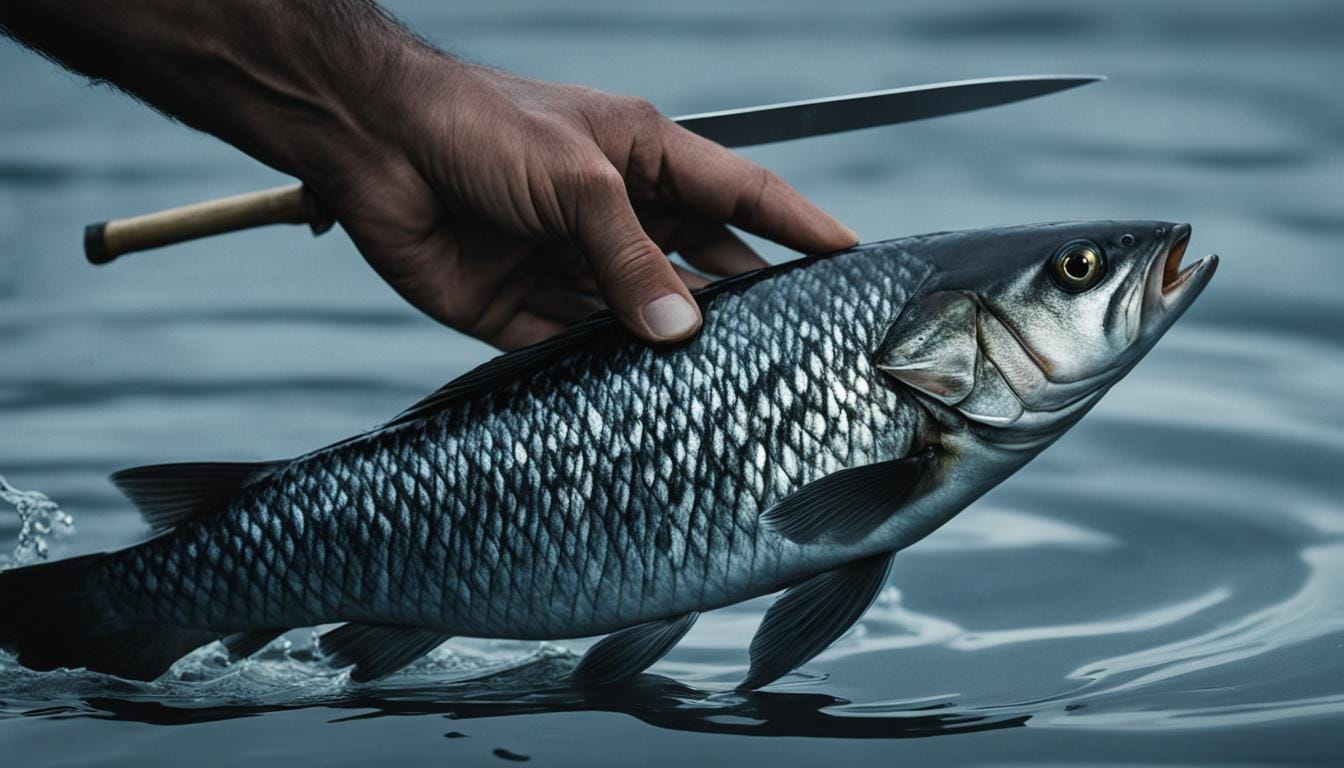When considering the ethical landscape surrounding the act of killing fish, one must wade into murky waters, where passion and pragmatism often collide. The popularity of angling as a leisure activity, coupled with societal norms tied to food consumption, frames an intriguing yet contentious dialogue about animal welfare and the ethics of fishing. As we delve deeper into this subject, we must address a fundamental question: Is killing fish an act of animal cruelty?
To grapple with this inquiry, it is essential to first define what constitutes animal cruelty. Generally, this term refers to behaviors that cause unnecessary suffering to animals. In the context of the aquatic world, this poses a unique challenge; fish are non-verbal creatures, and their pain responses can be less apparent than those of mammals. Thus, the debate hinges largely on philosophies regarding sentience and the subjective experiences of fish.
Many anglers argue that fishing is not inherently cruel. They often reference the joy of sport, competition, and the satisfaction derived from the pursuit of a challenging catch. Angling can also be depicted as a bonding experience—one that allows individuals to engage with nature, foster relationships, and appreciate the environment. Furthermore, the notion that fish do not experience pain in the same way higher vertebrates do adds a layer of complexity to the discussion about ethics and cruelty. Yet, this position glosses over critical considerations pertaining to the welfare of the fish involved.
Research suggests that fish are indeed capable of experiencing pain, albeit differently from terrestrial animals. Scherer et al. (2019), among other studies, illuminate fish’s ability to detect harmful stimuli, which challenges long-held assumptions about their insensitivity. Fish possess nociceptors—specialized cells capable of perceiving pain—and demonstrate behavioral responses indicative of distress. They skirmish, flee, and exhibit signs of stress following injury, thus shedding light on the ethics of angling practices.
However, the ethics of killing fish cannot be encapsulated solely within the framework of pain. A broader philosophical lens reveals a spectrum of attitudes toward the moral implications of consuming animals. For some, the intrinsic value of life—lifelines that navigate complex environments and display remarkable adaptations—imposes a duty to respect fish as sentient beings. The lever used to silence such ethical concerns rests on the practice of killing fish humanely. Is there a difference between catching fish for sport and killing them for sustenance?
When it comes to recreational fishing, this nuance becomes evident. Catch-and-release practices are often heralded as more humane; however, they may inadvertently allow for prolonged suffering. The manipulation of fish, whether through hooks or prolonged stress, raises questions about the integrity of these practices. It is essential to consider the holistic experience of the fish—not merely its moment of death or capture. Animal welfare advocates argue that any method involving unnecessary distress fails to meet the moral standards we assign to ethical treatment.
This discussion would be incomplete without addressing cultural perspectives. Certain societies view fish as integral components of their ecosystems and dietary practices, wherein fish killing involves respectful acknowledgment of life cycles. The deep-rooted interconnection between communities and their aquatic resources can foster a sense of responsibility and stewardship towards fish populations, thus framing the act of fishing in a more ethically sound light.
However, ethical dilemmas arise when practices become commercialized or exploitative. Overfishing and unsustainable practices pose dire consequences for fish populations and ecosystem health. Such exploitation undermines the premise of ethical treatment by prioritizing profit over welfare. In these scenarios, the distinction between ethical angling for sustenance and cruel practices that disregard life becomes starkly apparent.
Additionally, regulations surrounding fishing often reflect societal values. Many states and countries have instituted guidelines that insist on humane killing methods, promote sustainable practices, and set limits on species to prevent fish stocks from dwindling. These measures aim to balance enjoyment with ethical responsibility; they recognize the intrinsic worth of aquatic life while catering to human interests. However, compliance and enforcement of these regulations can be inconsistent, raising further ethical quandaries regarding animal welfare.
As the conversation around fishing and ethics evolves, increased awareness of fish welfare is crucial. Educational outreach that embraces ecological and ethical dimensions has the potential to shift societal norms. Anglers can foster a culture of responsibility by adopting low-impact fishing techniques, prioritizing conservation, and acknowledging the intrinsic value of their catch beyond mere sport.
In conclusion, the question of whether killing fish constitutes animal cruelty does not yield a definitive answer. It is a multifaceted issue steeped in personal convictions, cultural practices, and ecological realities. To navigate this ethical labyrinth, both anglers and society at large must engage in nuanced conversations that challenge preconceived notions and promote compassionate practices. By grappling with these ethical considerations, we pave the way for a more humane approach to our interactions with the aquatic world, recognizing not only the profound beauty of fish but also our responsibilities as stewards of the environment.








